Review for Dragon Inn [Masters of Cinema]
Introduction
Once in a while an unsolicited review disc still turns up for my perusal, although scarcity of time usually means that such titles have to remain by the wayside. But when Dragon Inn arrived, it coincided with a sudden wuxia deficiency. It’s been a good long while since I’ve seen a superhuman, period martial arts movie, lots of sword play and wirework, although Dragon Inn from 1967 actually predates the wirework era. This Taiwanese picture certainly made an impact on its release, and it’s even inspired a 1992 remake with Jet Li. It also is a sign that the restoration and archival movement has also reached martial arts cinema, as Dragon Inn has received the full restoration and 4k scan that we’ve come to expect of classic films presented on Blu-ray. I decided to scratch that itch and indulge in a little kung-fu and sword fighting.
During the Ming Dynasty, it was the Eunuchs that held political power in China, and they governed the land with a cruel and ruthless approach. So when Cao has the minister Yu framed and executed, it’s only politics that has him exile Yu’s children to the border. Once they are out of sight, he can enact his plan to have them assassinated. He sends his men ahead to the Dragon Inn to await the arrival of the children, and they are quick to throw their weight around, eliminating any potential resistance. But there are some other guests due at the inn that might have different ideas.
The Disc
Dragon Inn got a 4k restoration in 2014, and that does tell in its 2.35:1 widescreen 1080p transfer here, clean, sharp, stable and free of any major print damage or dirt. There’s a nice layer of film grain, and just a hint of flicker. It’s mentioned in the PR material that no vintage copy was available as a colour reference for the restoration, so I have to wonder whether the yellowish tinge to the print (some of the blue skies are positively green) is an artefact of the film stock of the period, something I have seen in other vintage martial arts films, or whether it’s an artefact of the restoration, a little orange and teal-ing. Other than that, the colour definition of the film is good, with costumes, sets and locations coming across with excellent detail.
However, shadow detail is lacking, and darker scenes can get lost in the murk. It’s the location shooting that is most impressive though, with visuals that stand up against any Leone movie in terms of vast vistas and epic scenery. The eponymous Inn stands alone in the middle of a desert, a lot like the trading post in Once Upon a Time in the West. The film gets an authentic PCM 1.0 mono Mandarin soundtrack with optional subtitles. The dialogue is clear, and the audio comes across well, with no distortion, hiss or glitches. The subtitles are timed accurately, but I question their accuracy. Apparently the siblings in the film are travelling incognito, with the sister disguised as a man, but the subtitles continually refer to her as female from the outset, so you might scratch your head when the penny drops for one of the other characters.
The images in this review were kindly supplied by the distributor.
Extras
The disc boots quickly and directly to a static menu screen.
The Premiere Newsreel is the Taiwanese equivalent of the old Pathé reels, this time with voiceover guy commenting on the crowds turning out for the movie. This is heavily damaged film, presented in 1080i, running to 1:45.
David Cairns provides an audio essay which takes a somewhat tongue-in-cheek look at the film. This lasts 15:21 and is in 1080p.
Finally the trailer 1:53 1080p has been created for the restored version, and features that footage. I was hoping to do a compare and contrast with an old un-restored trailer.
The Masters of Cinema films usually come with booklets featuring production notes and essays, but this time I didn’t get to peruse any pdfs.
Conclusion
It’s hard to take a film seriously when it kicks off with a Union Film logo, but accompanied by the Twentieth Century Fox fanfare with all the notes, as Eric Morecambe once put it, “not necessarily in the right order”, topped off with a gong. That goes some way to explaining David Cairns tongue-in-cheek essay in the extras. Watching Dragon Inn pretty quickly reminded me why it has been so long since I last watched a wuxia movie, and why I have steered clear of them in recent years. There’s a reason why I prefer the Hong Kong movies of the eighties, back when action comedy stars like Jackie Chan, Sammo Hung, and Yuen Biao injected personality and character into the films they made, as well as story. Dragon Inn has very little of these things, and in many ways is the epitome of the films that followed and were inspired by it. If you watch films for character, for narrative, for nuances of plot, then Dragon Inn will probably not appeal.
The plot really is irrelevant in this film; it’s just a means to an end, getting the characters to the Dragon Inn. The characterisations are thin too, the good guys do good, and the bad guys are evil, which sets up the antagonistic dynamic to the degree necessary in a film that really is there just to sell the action sequences, the wonderfully choreographed, shot and edited fights. To leaven the cycle of confrontation and action, there is the odd moment of humour, particularly with a pair of siblings that arrive at the inn after the main protagonist, but it’s always pretty much understated. And continuity is all over the place to the point that I wonder whether we have got the International version of the film, with a longer, more faithful version for domestic audiences. Certainly I was tempted to go looking for deleted scenes after the film ended.
The redeeming value of Dragon Inn is two-fold. As mentioned, the action sequences are really well choreographed, impressive kung-fu and swordplay delivered by actors that really know how to sell their craft. It’s also shot impressively well, and that is the second selling point of the film, the cinematography. It isn’t only the action, but the overall direction, the sets, the locations and the production design are all really well accomplished, with the visual aesthetic of the film up there with anything I have seen from Sergio Leone. It is a Spaghetti Western of a kung-fu movie and it’s worth watching in that regard alone. But I have to admit that in the end, the lack of a decent story, and the failure for any character to register with me made Dragon Inn a tedious experience.
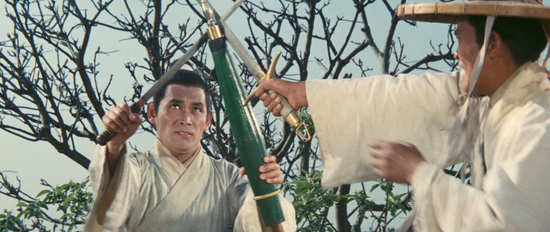
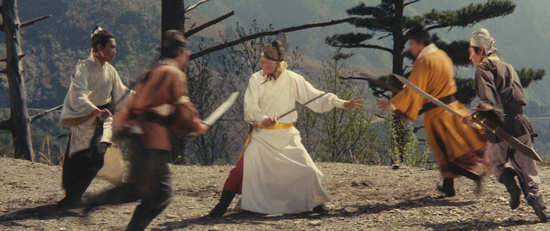
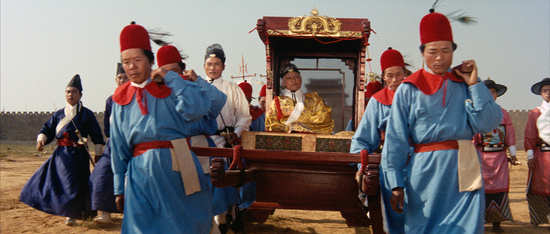
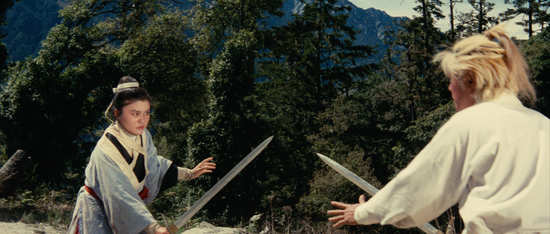
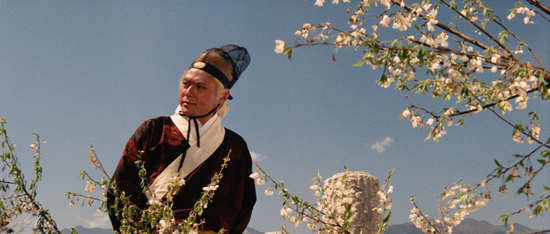
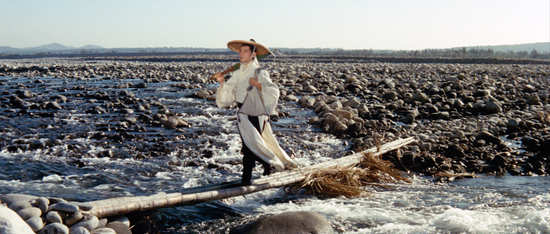
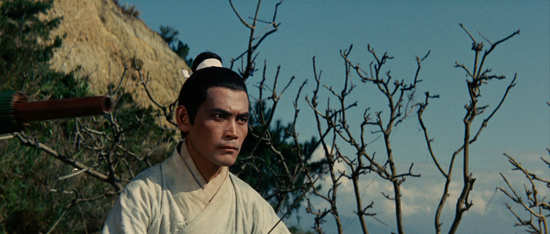
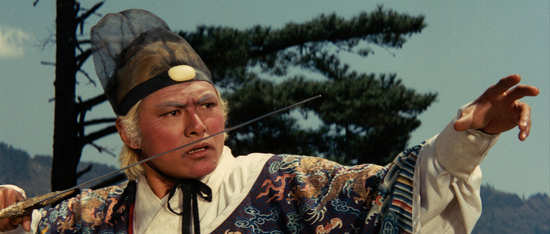
Your Opinions and Comments
Be the first to post a comment!